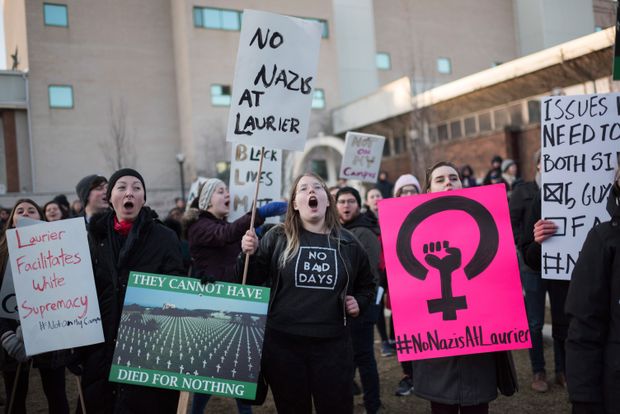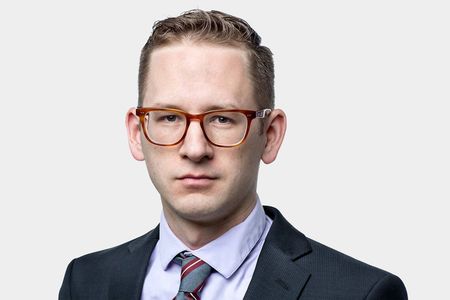Ontario Premier Doug Ford has warned universities and colleges they will face funding cuts if they fail to adopt free-speech policies that defend controversial speakers on campus and decline to stop shielding students from opinions some might find offensive.
Following a number of high-profile protests over the past year against speakers at Ontario universities, Mr. Ford promised during the spring election campaign that he would tie funding to free speech on campus. The government announced on Thursday it will give schools four months to design, implement and enforce wide-ranging free-speech policies.
“Colleges and universities should be places where students exchange different ideas and opinions in open and respectful debate,” Mr. Ford said in a statement released by his office on Thursday afternoon. "Our government made a commitment to the people of Ontario to protect free speech on campuses.”
Mr. Ford and Merrilee Fullerton, the Minister of Training, Colleges and Universities, were not available for comment.
The free-speech policies now required by Ontario’s government must mandate that schools remain open to discussion and free inquiry, should not shield students from ideas or opinions they find offensive and will not allow students or teachers to obstruct others from expressing their views. Hate speech that violates Canadian law will not be allowed.
Students who contravene the policies will be subject to existing campus discipline, according to Mr. Ford. The Higher Education Quality Council of Ontario will also be tasked with monitoring compliance starting in September, 2019. Schools that fail to maintain the policies will face “reductions to their operating grant funding, proportional to the severity of non-compliance,” according to a government release.
Robert Gordon, Wilfrid Laurier University’s provost, said the school fully supports the policy.
The university faced intense pressure from supporters of Lindsay Shepherd in late 2017 after the teaching assistant was reprimanded for showing a short video clip of a debate featuring University of Toronto psychology professor Jordan Peterson. The university subsequently apologized to Ms. Shepherd. She entered the free-speech debate again this year, when an event she helped organize at the school was disrupted; it featured Faith Goldy, a white nationalist and supremacist activist who has appeared on neo-Nazi podcasts.
“We’ve done a lot of work, certainly in the last year, to continue to reaffirm our commitment to free expression,” said Mr. Gordon, adding that Laurier will continue to work with other universities “to provide support for their students and staff and faculty in terms of creating strong environments for open and free expression.”
Mr. Gordon serves as chair of the school’s Task Force on Freedom of Expression, which was convened after the school attracted national headlines for disciplining Ms. Shepherd.
The task force has already outlined the university’s commitment to free speech, Mr. Gordon said, but he welcomed the policy, including the threat of funding cuts for non-compliance, as an added “incentive.”
Jim Turk, the director of Ryerson University’s Centre for Free Expression, called the policy an “unprecedented abuse of university autonomy.”
Universities, along with the media, are the foremost bastions of freedom of expression in the country, he said, adding it was “ironic” a government that set up a sex-ed “snitch line” and promised to prevent rallies critical of Israel would present itself as a protector of free speech.
“There’s an irony of the government trying to give the impression that they’re the ones defending free speech when they’ve been the critics of the exercise of free speech,” he said.
Dr. Turk said it was also troubling that the statement bans universities from recognizing or funding student organizations that refuse to follow the policy.
“That would seem to me to be a direct violation of the notions of free expression,” he said. “What if there’s a student group that was highly critical of the policy? Should they not have the right to exist and voice their criticism of it?”
Federal Conservative Leader Andrew Scheer said last year while running for his party’s leadership that schools should lose all federal funding if they fail to protect freedom of speech on campus.
Emmett Macfarlane, a political-science professor at the University of Waterloo, said Mr. Ford’s directive is “quite reasonable” and applauded the government’s move to base free-speech rules on hate-speech law. However, he warned that how the rules are applied will be the true test of the government’s intentions.
“We need to distinguish between hateful speech and legal hate speech. That’s where universities have gotten in trouble, that grey zone, where it isn’t clear if it is hate speech or not,” he said.



























